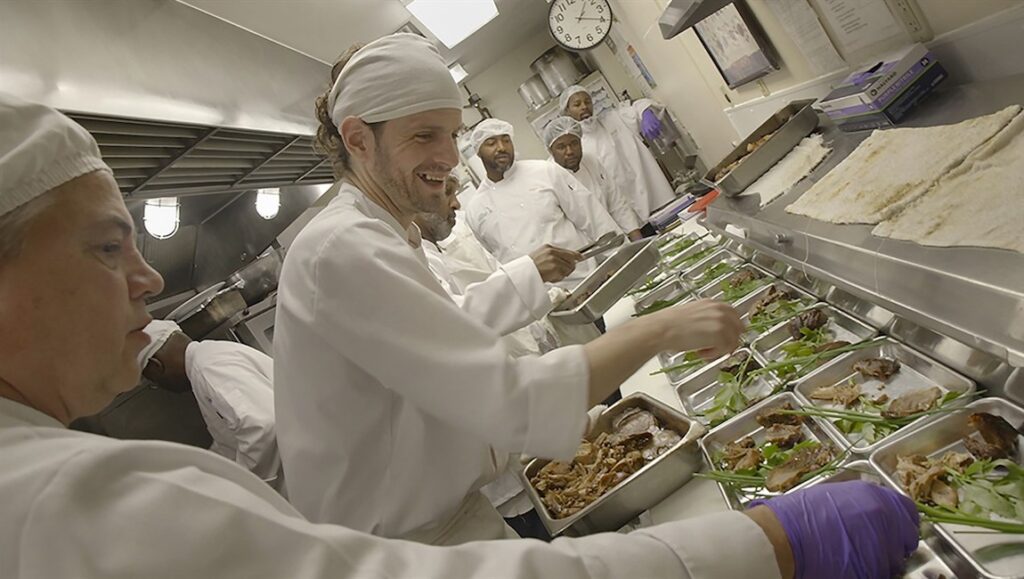Tranquility is a relative concept — inside a prison, one of the most stressful situations known to man, even the white-knuckle pressures of a professional kitchen can come as a balm. For the inmates at Lakeland Correctional Facility in Coldwater, Michigan, Chef Jimmy Lee Hill’s gourmet food-tech program offers not only relief and distraction from the intensity of prison life, but a potential route towards reintegration into society through legal employment. Following Chef Hill and three of his protégés, the documentary showcases, without sentimentality, the cruel realities of the carceral system and the relentless hope that characterizes those who must exist within it.
To say that Coldwater Kitchen is characterized by hope might give the wrong impression; the film is no syrupy, inspirational confection. The men of Lakeland Correctional Facility live within the aftermaths of violent or chaotic lives, in which hope is perhaps the only means of survival left available to them. Directors Brian Kaufman and Mark Kurlyandchik do offer a sense of hope for the future in the inmates’ stories, but it is one that fully acknowledges the callousness of the carceral system. In particularly affecting scenes, both Chef Hill and his protégés separately lament that, despite the strength of the social safety net afforded to inmates by Coldwater Kitchen, when inmates are released on parole, they are forbidden contact with their mentor, right at the most vulnerable moment of their journey back to normality. For the most part, Kaufman and Kurlyandchik don’t allow their clear admiration of the program to gloss over the considerable fundamental flaws of the system, creating a film that manages to find hope even in spite of the honest truth that there is not much to be found in these environs.
The film’s emotional climax, an encounter between Chef Hill and a particularly promising though not entirely trustworthy trainee, takes a different path, following the film’s most interesting interpersonal thread to its conclusion. It’s here where the intimacies of such an intense environment are laid bare, but also where the film coalesces into something more cohesive, a statement of what it means to have agency while imprisoned, and how to begin living with the fact that, within such a system, there are places that even the most dedicated mentors cannot reach.
Published as part of DOC NYC 2022 — Dispatch 3.


Comments are closed.